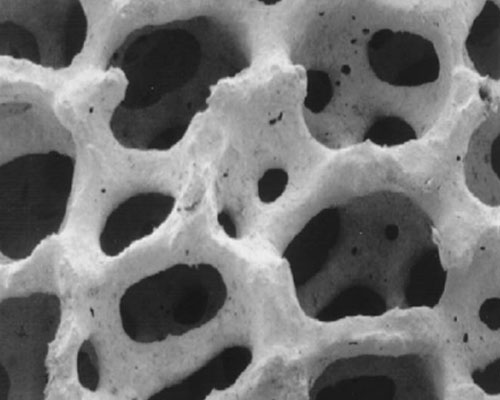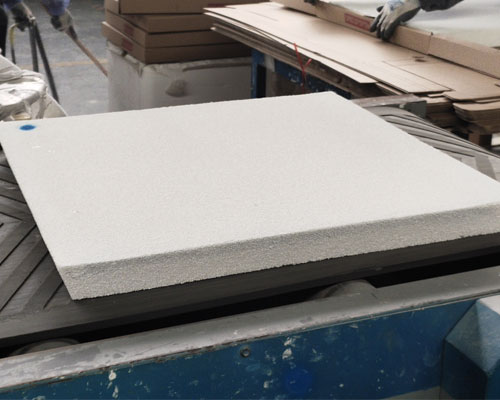The foam ceramic filter for casting is installed in the CFF filter box. After the molten aluminum degassing, the CFF filtering system works. The filter box has good thermal insulation properties. The CFF filter box and casting launder are as close as possible to the distribution plate. The reason is that it can shorten the flow distance of the molten aluminum after filtration, and reduce or avoid the re-oxidation of oxides. The aluminum liquid flows out from the furnace mouth through the filter box, and then flows through the trough to the distribution launder.
With the extension of the filtration time, the inclusions on the surface of the ceramic foam filter plate and the hole wall increase, the filtration flow rate decreases, and the front-to-back difference increases.
The inclusions in aluminum alloy come directly from the charge, and most of the inclusions are formed during the melting and casting process, mainly oxide inclusions.
The choice of foam ceramic filter for casting must be based on the flow of molten aluminum. Second, consider the cleanliness of the melt, the maximum inclusion content, and the total output of the melt. The filtering effect of the molten metal filter is mainly guaranteed by its size and porosity. The greater the porosity of the filter plate, the worse the slag removal effect. For demanding aluminum castings, foundry ceramic foam filters with small porosity should be selected.

AdTech specially designed Ceramic Foam Filters for Casting are made of the basic raw material Aluminium Oxide. They are manufactured with porosities varying from 10 to 60 pores per inch (PPI). Also, combo sets are made in 20-30 PPI and other selections are possible. Different sizes and custom-made filters are manufactured according to specifications.
Foam Ceramic Filters Features
- A homogeneous pore structure
- High surface strength
- Temperature resistant up to 1100°C
- Excellent resistance against chemicals used in foundries


Pingback:Ceramic Filters for Metal Casting – 站点标题